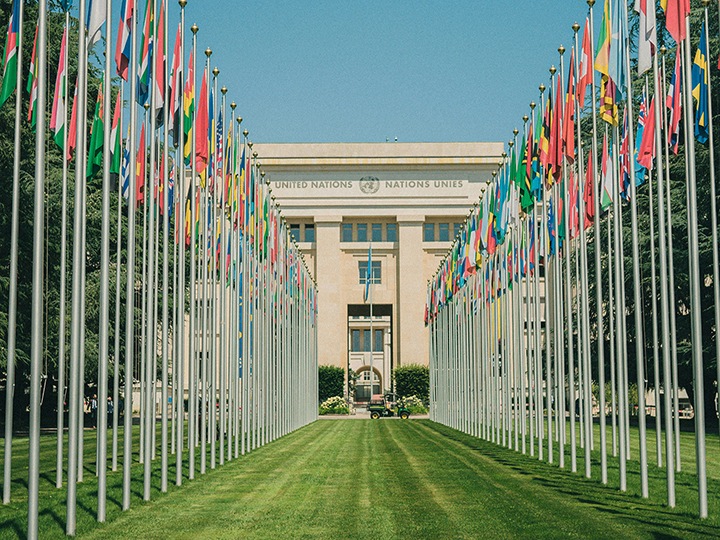Georgetown University and Peking University Students Exchange Views on the Future of Global Development
In spring 2023, 20 undergraduate and graduate students from Georgetown University and Peking University met virtually three times in March and April to exchange views on global development as part of the U.S.-China Student Dialogue organized by Georgetown University’s Initiative for U.S.-China Dialogue on Global Issues.

The United Nations, China, and the United States have proposed their version of the global development agenda. What similarities and differences exist among these three visions on global development? How can the United States and China take the initiative to deepen international collaboration to address the pressing issues facing the world’s most vulnerable populations? To answer these questions, the students examined the United Nation’s Sustainable Development Goals, China’s Global Development Initiative, and reports from the United States Agency for International Development. This examination helped the students recognize the differences between the worldviews and ideologies of the two nations and feel more deeply the need to foster mutual understanding.
The Importance of Collaboration
Dung Tran (SFS'26), a Georgetown University in Qatar first-year undergraduate student from Vietnam, noticed the “brewing mistrust between the two governments” and wrote about “the urgency to reignite engagement and dialogues and fight against trends of antagonism” in his reflections, citing the obligations as global citizens and future leaders in global politics and business.
Similarly, Sarah Iskander (G’24), a master’s degree student in the School of Foreign Service, found a “resounding emphasis on the necessity for leadership and collaboration between the United States and China” and highlighted the importance of “future leaders working together to foster understanding and cultivate relationships.”
Tempered Optimism
Despite the consensus, the discussants were also upfront about the potential limitations in the student-to-student dialogues. This series of dialogues was held in an era of global uncertainty, during which geopolitical rivalries, the COVID-19 pandemic, and military conflicts significantly slowed down global economic growth and disproportionately affected the less-developed countries.
Kevin Li (SFS’25), a Georgetown sophomore studying international politics, observed the difficulties for both sides to take on more controversial topics. “There is still a strong tendency and desire to sidestep points or issues that might provoke more disagreement or controversy among participants,” he wrote. He also acknowledged that the solutions to global development that the students proposed may be unrealistic given the overall climate in bilateral relations.
Aditi Sridhar (SFS’24), a third-year student in the same program, raised awareness on whether the dialogue can truly reflect the general mutual perception between the Chinese and the American citizens. She argued that students from Georgetown University and Peking University all come from multicultural backgrounds that can reaffirm their faith in international institutions, the rule-based world order, and cross-cultural communication, while other citizens or politicians from the two countries may not share the same views.
Embracing Diverse Perspectives
Despite these challenges, all students spoke highly of this experience and praised the attitudes of their peers. Ajay Nathan (SFS’25) describes the dialogue as “a highly collaborative environment where students from both universities actively listened to each other and worked along the same train of thoughts.” Kevin Li especially appreciated the candidness and objectivity of the discussions.
“Everyone involved put forth good faith efforts to engage with each other and listen to other perspectives without prejudice and with a strong degree of mutual respect.”
In particular, talking to peers from different backgrounds gave the students an opportunity to address their established mindsets and embrace diverse perspectives. According to Charlie Gatik (SFS’24), who studies international politics and Chinese, it was precisely “the willingness to challenge assumptions” that allowed for “meaningful and nuanced discussions.”
